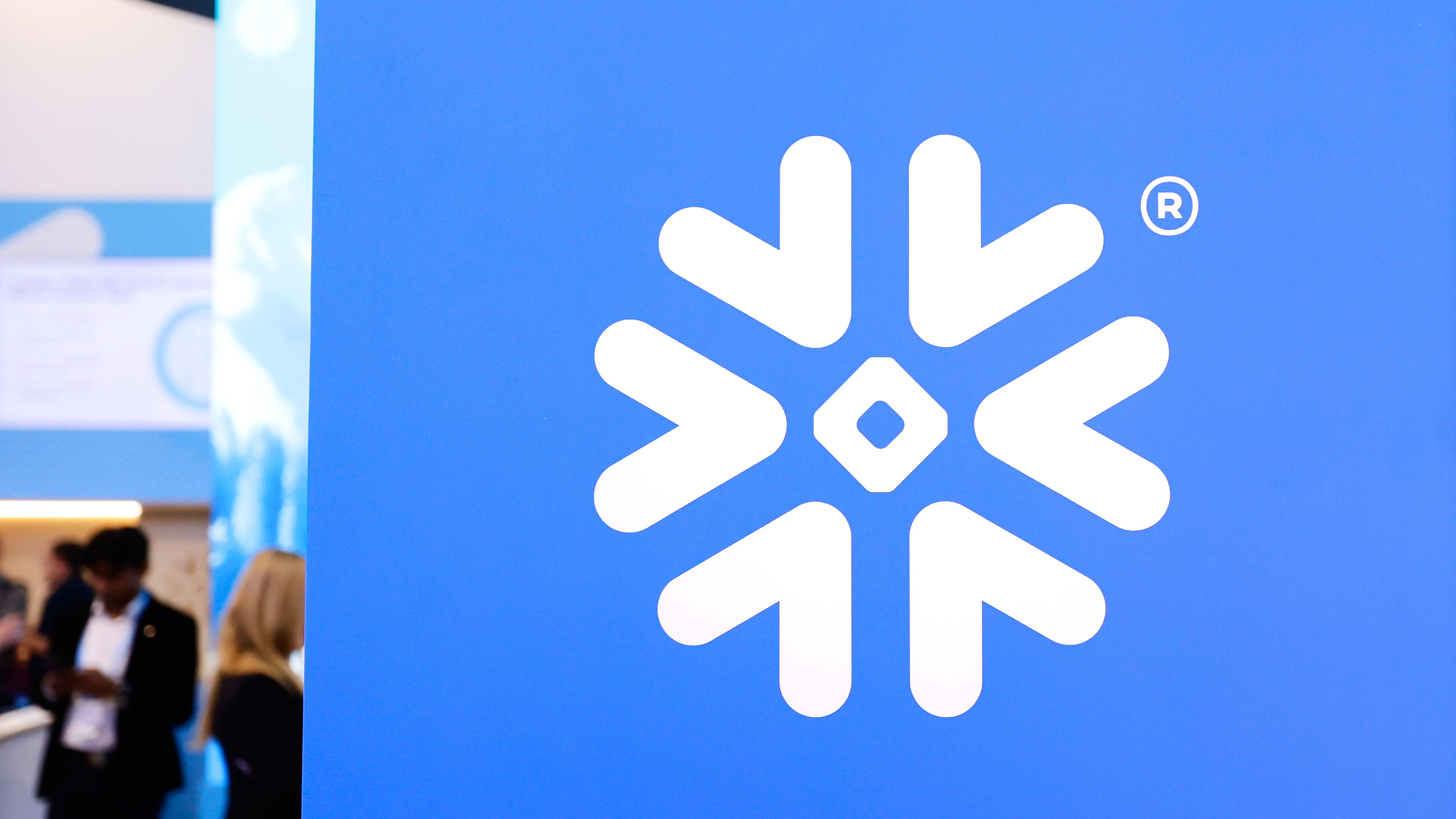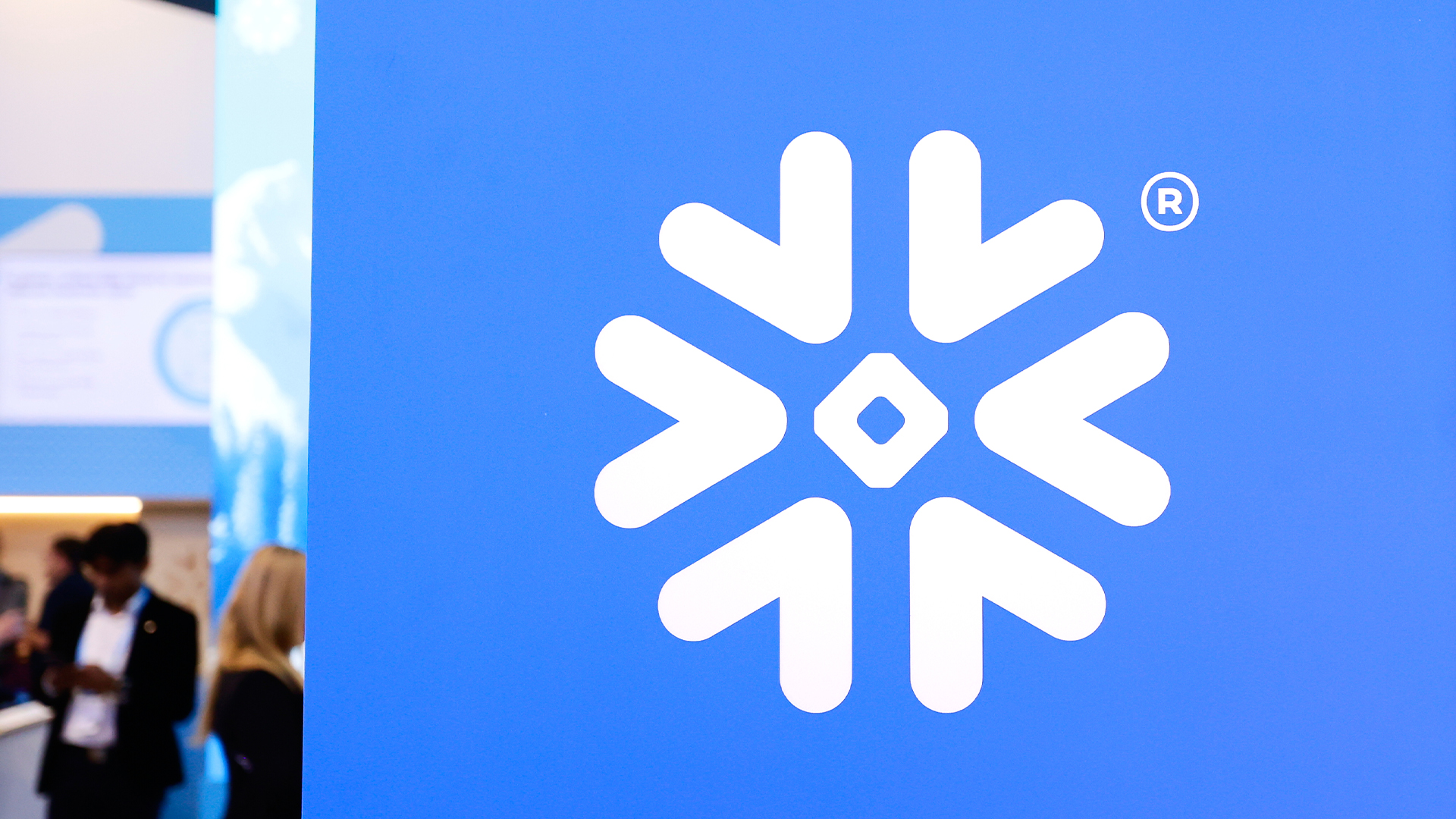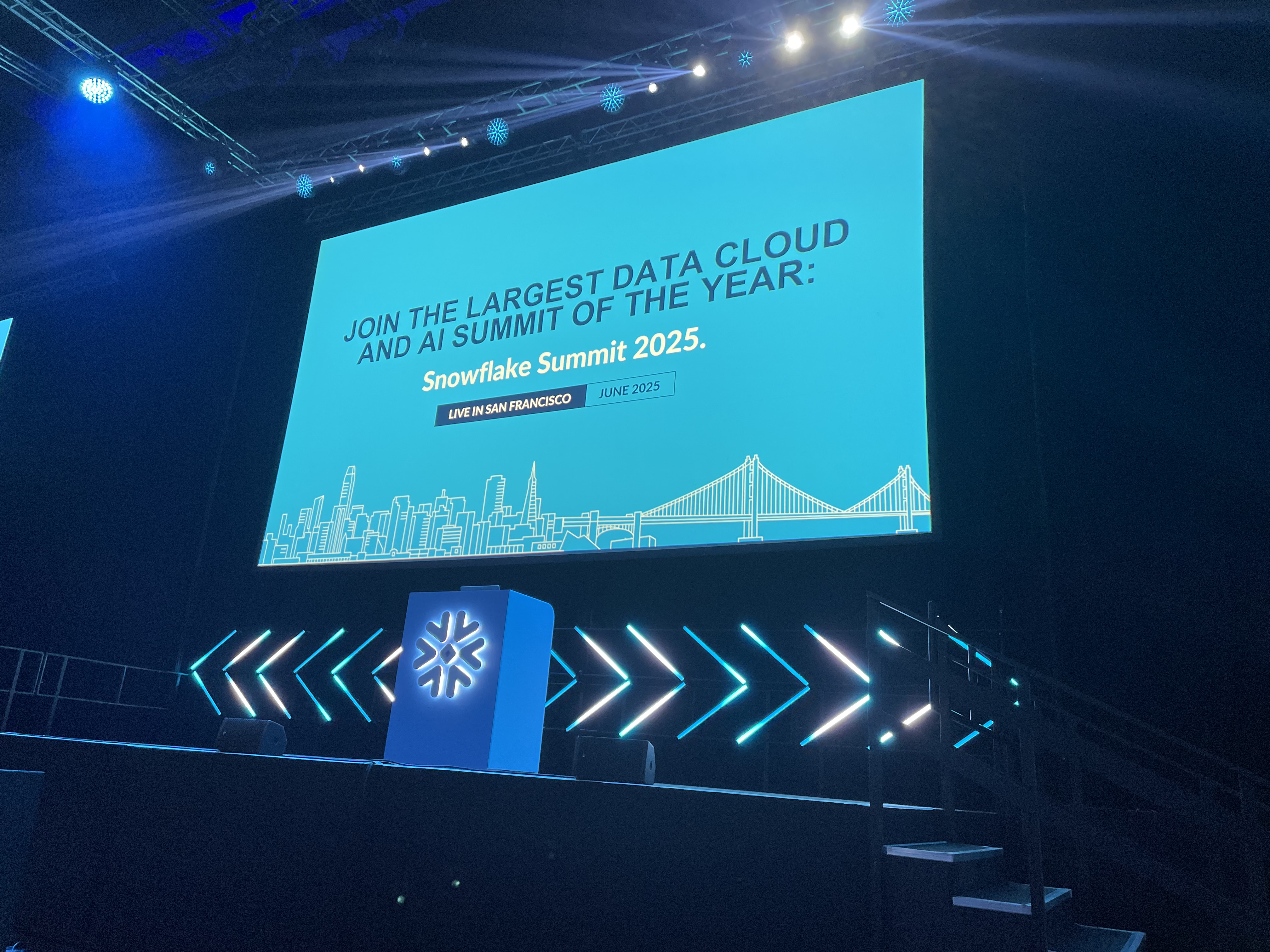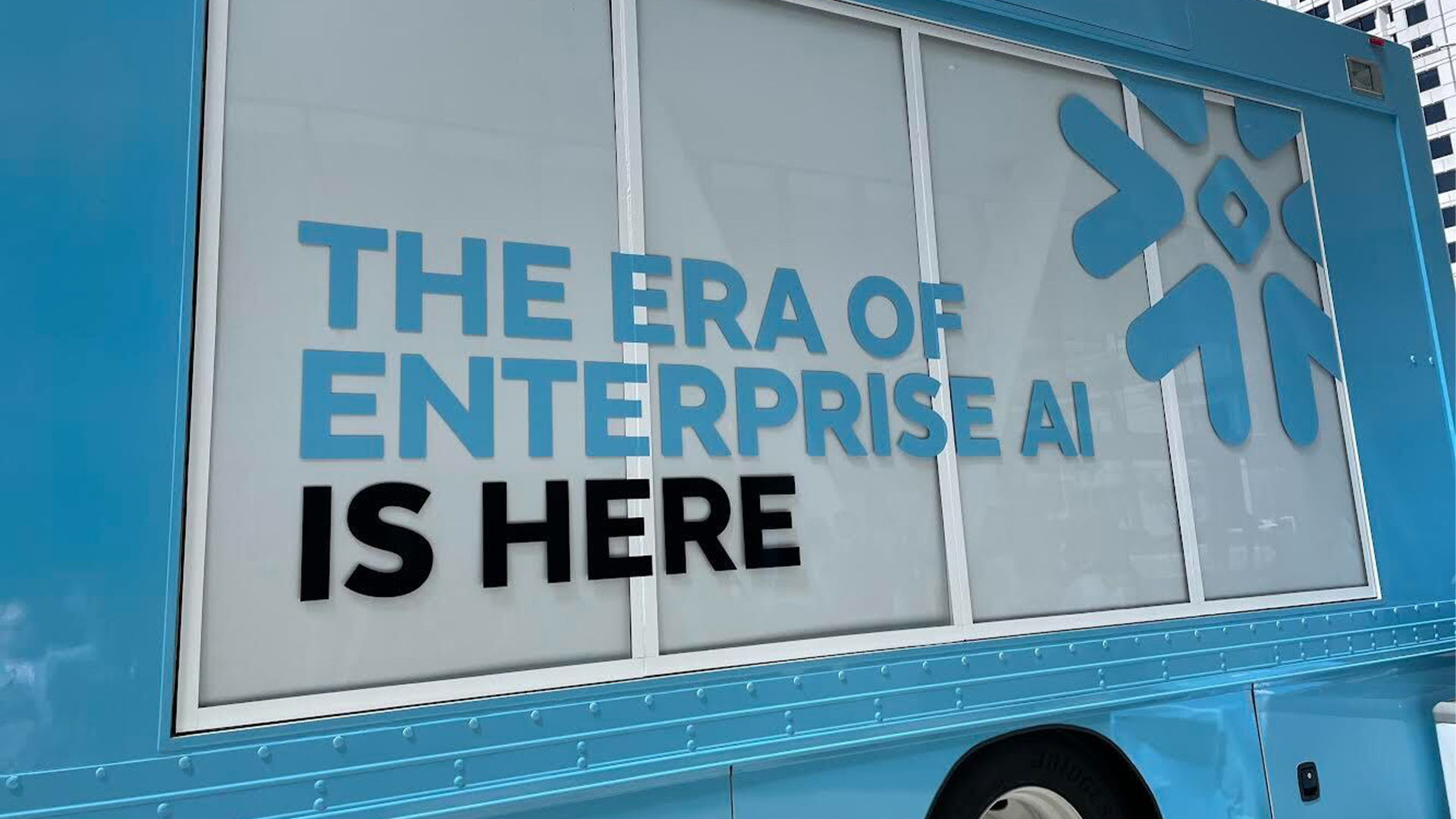Snowflake’s AI strategy is cooking up a storm with enterprise customers
Snowflake product revenue has skyrocketed on the back of the firm's ambitious AI strategy, offering the firm a springboard as it moves deeper into the generative AI space

Ross Kelly

Snowflake has made no secret of its generative AI ambitions in recent months, but its strategy already appears to be paying dividends.
In its Q1 earnings report, the firm revealed product revenue reached nearly $790 million, representing 24% year-on-year growth with a net revenue retention rate of 128%.
The firm also boasted a trailing 12-month revenue of over $1 million with 485 customers, and a further 709 ‘Forbes Global 2000’ customers. These customer bases represented year-on-year growth of 30% and 8% respectively.
Snowflake CEO Sridhar Ramaswamy put this growth down to Snowflake’s traditional core strengths in cloud storage and data analytics, as well as its suite of AI products which are beginning to deliver tangible results for customers.
“Our core business is very strong. Our AI products, now generally available, are generating strong customer interest,” Ramaswamy said. “They will help our customers deliver effective and efficient AI-powered experiences faster than ever.”
Snowflake appears confident it can continue on an upward trajectory, and recent earnings from leading generative AI solutions providers show the appetite – and potential for further growth – is certainly there.
Microsoft, for example, has recorded significant growth since the end of 2023 off the back of demand for generative AI solutions, having invested heavily in expanding its services portfolio over the last 18 months.
Sign up today and you will receive a free copy of our Future Focus 2025 report - the leading guidance on AI, cybersecurity and other IT challenges as per 700+ senior executives
Snowflake needs to lean on its unique strengths
The quarterly earnings report comes just ahead of Snowflake’s annual Data Cloud Summit in San Francisco, which will give the firm a springboard to expand on its plans for a charge into the enterprise generative AI space.
In recent months, the company has been highly active in this area, unveiling a slew of generative AI products and services for customers. Chief among these was the launch of its enterprise-grade large language model (LLM), Arctic.
The firm framed this new LLM as a key differentiator moving forward, offering customers one of the most cost-efficient models currently available on the market – a shrewd move given the current concerns around the eye-watering costs of AI development.
The model itself was built and rolled out in less than three months, with Snowflake noting that development costs amounted to just one-eighth of the training costs typically associated with similar models.
In the wake of the earnings results Bola Rotibi, chief of enterprise research at CCS Insight, tells ITPro that the recent success is a clear indication the firm is capitalizing on its longstanding reputation within the analytics and data management domains to position itself as the go-to provider for enterprises.
“A lot of organizations are starting to recognize the importance of having a robust data architecture, data infrastructure, data management strategy,” she says.
Given that this is Snowflake’s “bread and butter”, Rotibi says, it’s understandable that the firm is doing well. These are fields that slot into the data demands of AI well.
Snowflake customers will be eager to see how the firm plans to build on this strong initial foray into the generative AI field. In an industry dominated by major players, Snowflake needs to act wisely and draw on its strengths.
The key to this will be enabling customers to maximize their data to support AI innovation. Enterprises globally are itching to harness the vast quantities of unstructured data they hold and this wasn’t lost on the firm at its 2023 Summit.
Christian Kleinerman, SVP of product at Snowflake, told attendees at last year’s conference that the rapid shift in focus toward generative AI has made companies realize that “data represents a competitive advantage”.
“It’s something that can get companies ahead of their peers, but those that are not doing [so] are the ones that are going to fall behind,” he said.
“This realization has been happening in the last five to ten years. And AI is now turbocharging that.”
Kleinerman claimed the company wanted its marketplace to “be Netflix, not Youtube”, noting that it refused to sacrifice quality in pursuit of disruption. This was, and still is, a sentiment that many enterprises will appreciate. Diving headlong into AI development is a treacherous - and costly - prospect.
Standing out by stepping carefully
In framing itself as an enabler of cautioned, responsible enterprise AI development, Snowflake has a chance to differentiate itself from other firms championing innovation at all costs.
It’s already made headway in this regard. In June 2023, Snowflake inked a deal with Microsoft to add new product integrations for its Data Cloud that aim to bolster low code/no code application development as well as data governance.
The firm has since built on this partnership, unveiling an expanded deal with the tech giant to provide customers with a “seamless data experience” that will enable bi-directional access between Snowflake and Microsoft Fabric.
The goal here is to ensure more efficient and flexible data management capabilities for enterprises.
RELATED WHITEPAPER

More recently, the firm also announced it had entered an agreement to acquire TruEra, an AI startup that produces tools to test and debug machine learning and large language models during production.
At last year’s Data Cloud Summit, generative AI was still in a relatively nascent stage and the hype and hyperbole surrounding the technology was rampant. In the months following this, Snowflake – and others across the industry – have been laying the foundations for enterprises to truly capture the value of generative AI.
Positioning itself as a provider that can offer calm, measured support for enterprises dabbling in generative AI could be a key differentiator. Moving fast and breaking stuff won’t cut it given the high stakes of AI adoption, but a considered approach and helping hand will be critical.
Maggie Holland, global content director, B2B IT at Future, will be providing on-site coverage of Snowflake Data Cloud Summit 2024 between 3 and 6 June. Stay up-to-date with live reports of all the announcements and more on ITPro.

George Fitzmaurice is a former Staff Writer at ITPro and ChannelPro, with a particular interest in AI regulation, data legislation, and market development. After graduating from the University of Oxford with a degree in English Language and Literature, he undertook an internship at the New Statesman before starting at ITPro. Outside of the office, George is both an aspiring musician and an avid reader.
- Ross KellyNews and Analysis Editor
-
 What is Microsoft Maia?
What is Microsoft Maia?Explainer Microsoft's in-house chip is planned to a core aspect of Microsoft Copilot and future Azure AI offerings
-
 If Satya Nadella wants us to take AI seriously, let’s forget about mass adoption and start with a return on investment for those already using it
If Satya Nadella wants us to take AI seriously, let’s forget about mass adoption and start with a return on investment for those already using itOpinion If Satya Nadella wants us to take AI seriously, let's start with ROI for businesses
-
 Snowflake and Anthropic partner up on agentic AI, model sharing
Snowflake and Anthropic partner up on agentic AI, model sharingNews The pair will bring Anthropic’s Claude models to customers via Snowflake’s AI platform
-
 Snowflake CEO: “Many vendors sell you parts of a car and tell you to build it yourself. At Snowflake we have a different philosophy. We want to give you the car.”
Snowflake CEO: “Many vendors sell you parts of a car and tell you to build it yourself. At Snowflake we have a different philosophy. We want to give you the car.”AI data cloud firm’s leader uses its local event series to reiterate how it is helping customers address current and future challenges head on…
-
 Snowflake's tweaked partner support receives rave reviews
Snowflake's tweaked partner support receives rave reviewsNews The AI and data cloud firm made some changes earlier this year and by all accounts they have been very well received...
-
 Snowflake expands Microsoft partnership to bring generative AI models to its Data Cloud
Snowflake expands Microsoft partnership to bring generative AI models to its Data CloudNews Freshly expanded collaboration will focus on new product integrations with Microsoft’s Azure OpenAI, Azure ML, and more